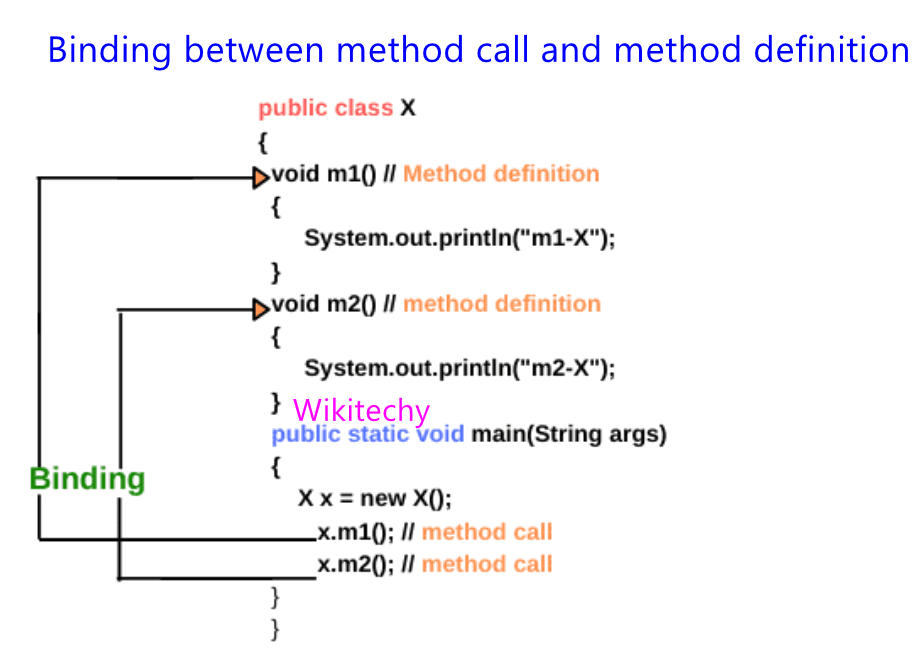Difference Between static and dynamic binding in Java ?
Difference Between static and dynamic binding in Java

| Static Binding | Dynamic Binding |
|---|---|
| Events occur at compile time | Events occur at run time. |
| All information needed to call a function is known at the compile time. Static binding uses Type(Class in Java) information for binding |
All information need to call a function come to know at the run time. Dynamic binding uses Object to resolve binding. |
| The advantage of static binding is Efficiency | The advantage of dynamic binding is Flexibility. |
| Fast Execution | Slow Execution. |
| Static binding is also called as Early Binding. | Static binding is called as Late Binding. |
|
|
| Overloaded function call, Overloaded operators. | Virtual function in C++, overridden methods in java. |

